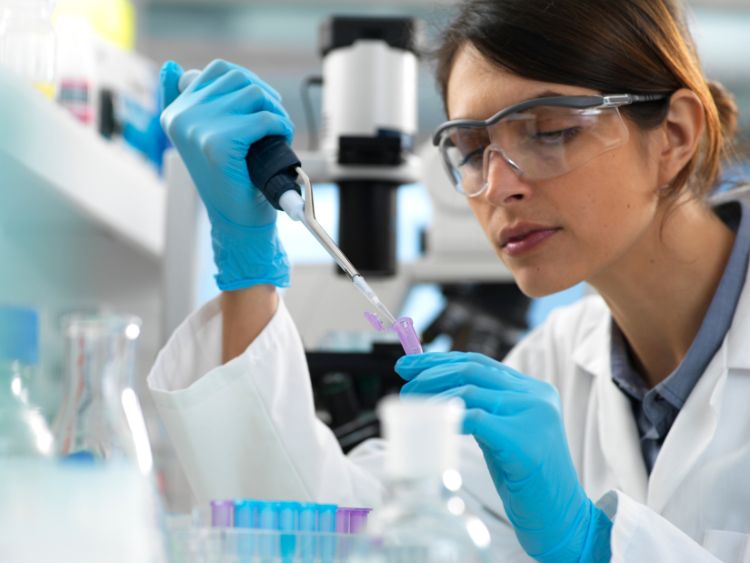Ever wondered about your heritage or if your health risks are rooted in your genes? For many in the Jewish community, genetic testing offers a gateway to understanding both their ancestry and potential health concerns. This article delves into the fascinating world of Jewish genetic testing, providing insights into its importance, the process, and the ethical considerations. Whether you’re exploring your roots or taking proactive steps for your family’s health, Jewish genetic testing might just hold the key to unlocking vital information.
Understanding Jewish Genetic Testing
What is Jewish Genetic Testing?
Jewish genetic testing involves analyzing DNA to identify specific genetic markers prevalent in Jewish populations. This type of testing can reveal information about ancestry, carrier status for certain genetic disorders, and even potential health risks. It’s a powerful tool that can provide invaluable insights for individuals and families.
Why is Jewish Genetic Testing Important?
Jewish genetic testing is crucial for several reasons:
- Ancestry and Heritage: It helps individuals connect with their Jewish heritage, understanding their genealogical roots.
- Health Awareness: Identifies carriers of genetic disorders common in Jewish populations, enabling informed family planning.
- Proactive Health Measures: Highlights potential health risks, allowing for early interventions and lifestyle adjustments.
The Genetic Disorders Common in Jewish Populations
Tay-Sachs Disease
Tay-Sachs is a fatal genetic disorder that primarily affects infants. It’s particularly common among Ashkenazi Jews, with a carrier rate of about 1 in 27. Early detection through genetic testing is vital as it can prevent the birth of affected children through informed reproductive choices.
Gaucher Disease
Another prevalent disorder is Gaucher disease, which affects the body’s ability to break down certain fats, leading to organ damage. Carrier screening for Gaucher disease is recommended for those with Ashkenazi Jewish ancestry.
Cystic Fibrosis
Cystic Fibrosis (CF) is a life-threatening disorder that affects the lungs and digestive system. Jewish genetic testing can identify carriers of the CF gene, helping prospective parents make informed decisions.
BRCA Mutations
BRCA1 and BRCA2 mutations are linked to an increased risk of breast and ovarian cancers. Ashkenazi Jews have a higher prevalence of these mutations, making genetic testing a crucial step in cancer prevention and early detection.
The Process of Jewish Genetic Testing
How Does it Work?
The process of Jewish genetic testing typically involves:
- Sample Collection: A saliva or blood sample is collected.
- DNA Analysis: The sample is analyzed in a lab to identify specific genetic markers.
- Results: The results are reviewed and interpreted by genetic counselors, who provide insights and recommendations based on the findings.
Where to Get Tested?
Several organizations and clinics specialize in Jewish genetic testing, including:
- JScreen: A non-profit initiative offering at-home saliva test kits.
- Dor Yeshorim: Provides confidential genetic screening primarily for matchmaking purposes.
- MyHeritage DNA: Offers ancestry testing with a focus on Jewish heritage.
Ethical Considerations and Concerns
Privacy and Confidentiality
Genetic testing raises concerns about the privacy and confidentiality of genetic information. It’s essential to choose reputable testing providers that adhere to strict privacy policies.
Psychological Impact
Learning about one’s genetic predispositions can be emotionally challenging. Genetic counseling is recommended to help individuals understand and cope with the results.
Discrimination
There are fears about genetic discrimination in employment or insurance. However, laws like the Genetic Information Nondiscrimination Act (GINA) offer protections against such discrimination in the United States.
FAQs
What is the purpose of Jewish genetic testing?
Jewish genetic testing aims to identify genetic markers specific to Jewish populations, providing insights into ancestry, carrier status for genetic disorders, and potential health risks.
How accurate is Jewish genetic testing?
Jewish genetic testing is highly accurate, with advanced technologies ensuring precise identification of genetic markers. However, the interpretation of results should always involve genetic counseling.
Is Jewish genetic testing expensive?
The cost of Jewish genetic testing varies, but many organizations offer affordable options. Some insurance plans may cover part or all of the testing costs.
Can Jewish genetic testing predict all health risks?
While Jewish genetic testing can identify certain genetic predispositions, it cannot predict all health risks. It’s a tool for understanding specific genetic factors, but lifestyle and environmental factors also play significant roles in health.
How do I prepare for Jewish genetic testing?
Preparation typically involves understanding the test’s purpose, choosing a reputable testing provider, and consulting with a genetic counselor. No special physical preparation is usually required.
Conclusion
Jewish genetic testing is a powerful tool that bridges the gap between heritage and health. By providing insights into ancestry and identifying genetic risks, it empowers individuals to make informed decisions about their health and family planning. As with any genetic testing, it’s crucial to approach it with awareness of the ethical considerations and to seek professional guidance for interpreting the results. Whether you’re curious about your roots or proactive about your health, Jewish genetic testing offers a path to valuable knowledge and peace of mind.
Authoritative Links
For further reading and authoritative information on Jewish genetic testing, explore these resources:
Jewish genetic testing is more than just a scientific endeavor; it’s a journey into understanding one’s identity and safeguarding future generations. Embrace the insights it offers and make informed choices for a healthier tomorrow.

